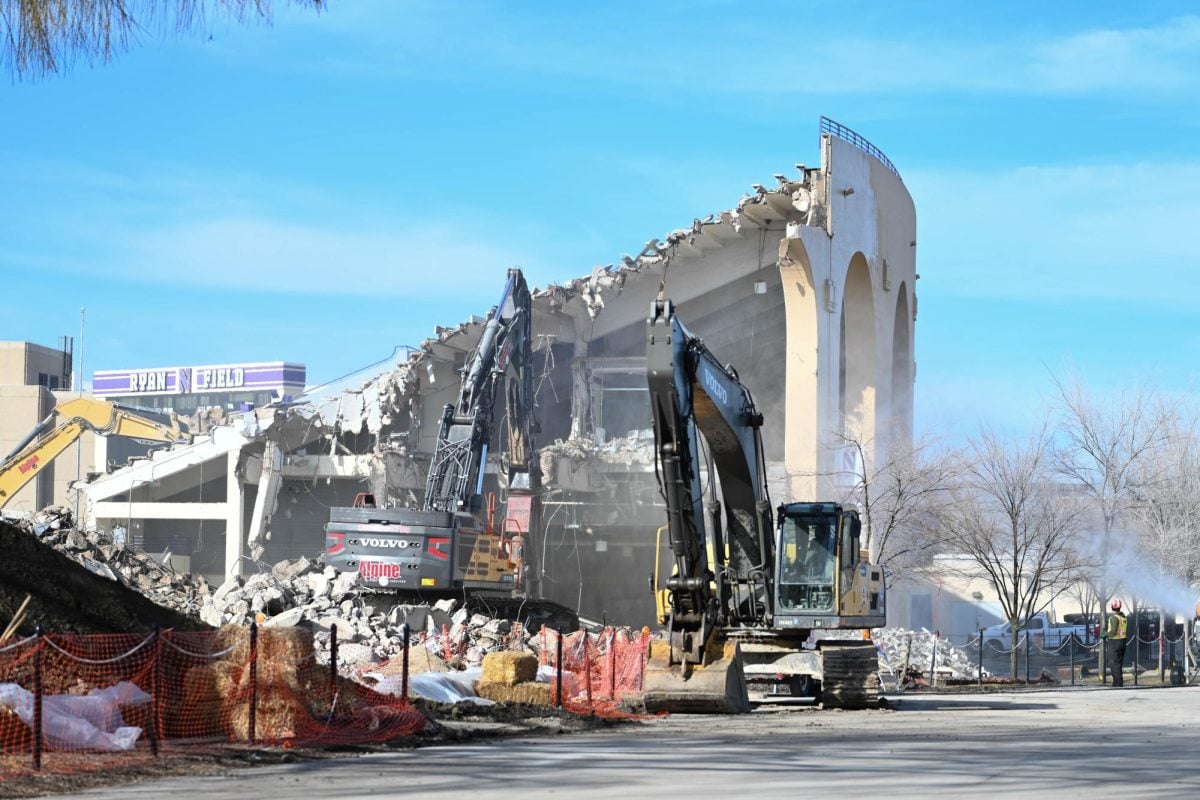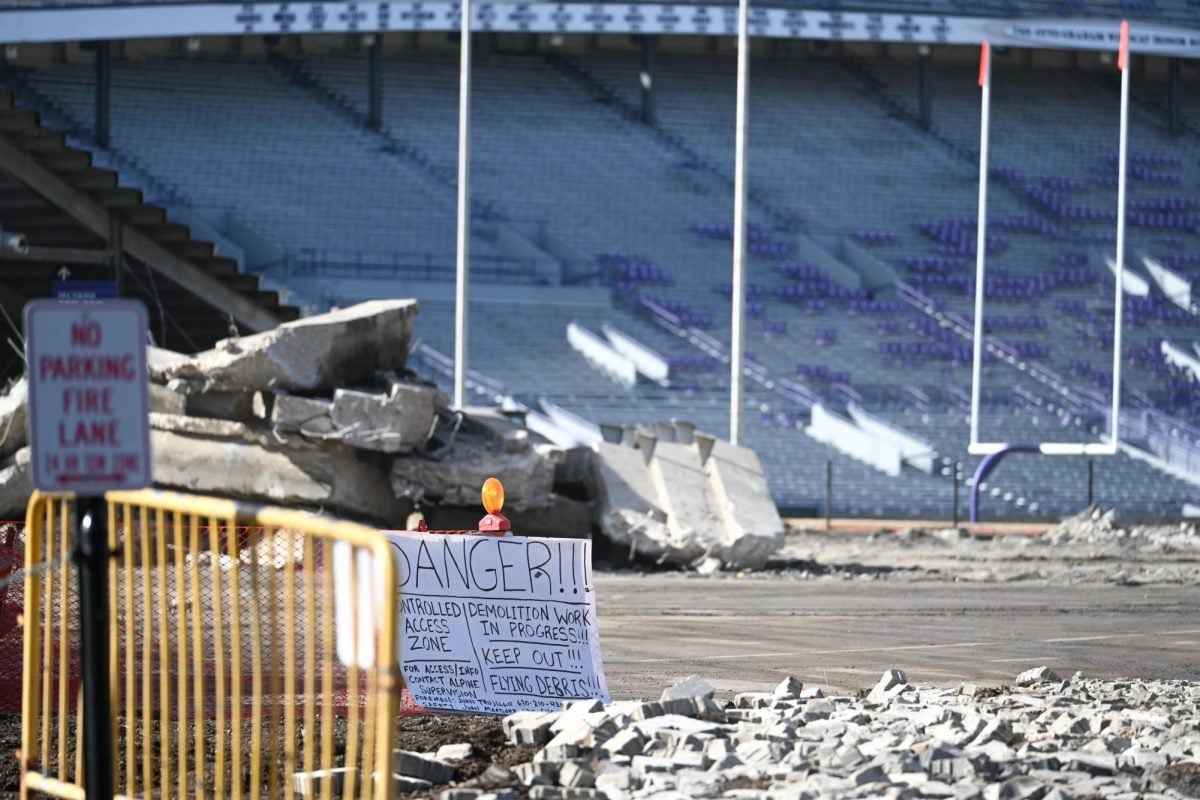Piece by piece, Northwestern’s football stadium of 97 years is turning to rubble.
Half of Ryan Field’s bleachers have disappeared since the full-scale demolition began last week. The press box side has sat largely untouched, biding its time as the four-month process continues.
Just beyond the stadium’s shadows, the co-owner of hot dog restaurant Mustard’s Last Stand reminisced on recent times.
“It’s bittersweet,” Lonnie Starkman said. “I’ve been looking at this building my whole life. I’ve been working here 35 years. I’ve been looking out this window right at the stadium, working football games and all the events they had.”
Mustard’s Last Stand sits next to Ryan Field’s parking lot, which the demolition work has not touched. But as the stadium makes its own last stand, people who live nearby have already felt the impacts of the demolition itself.
Truck traffic and construction noise were ranked among 7th Ward residents’ top concerns before demolition began. Today, the controversy over future commercial events at a rebuilt Ryan Field still weighs on residents now feeling the project’s first tangible impacts.
Opened in October 1926, Ryan Field — then called Dyche Stadium — served as NU Athletics’ flagship facility. In November, the stadium’s final game, a bowl-clinching victory over Purdue, closed Ryan Field on a celebratory note. The field then sat dormant for more than two months.
Though Ryan Field’s bleachers often sat only half-filled, and its facilities were sometimes dubbed subpar, the stadium provided nearly a century of indelible Wildcat memories.

“It’s kind of a heartbreak,” said Sam Licea, who manages Mustard’s Last Stand. “My 17 years being here, it’s always been part of gameday.”
Old pictures, programs and other football memorabilia line the walls of Licea and Starkman’s hot dog and hamburger stand.
Starkman said he will welcome the new stadium. Construction crews have already started to patronize Mustard’s Last Stand, he added, and the Wildcats’ connection to his business still runs deep.
“People from everywhere have been here because of this stadium,” Starkman said.
Demolition work takes place weekdays 7 a.m. to 7 p.m. and Saturdays 8 a.m. to 5 p.m. The construction manager said last month that 150 to 200 workers will roll into the neighborhood for demolition.
In his home on the other side of Ryan Field this week, Sam Mordka said he felt a big jolt. On Thursday, he pointed to a crack in his living room’s drywall.
“You could hear the noise just now,” Mordka said. “Literally, the house shook. And there was already a little crack there, but it expanded.”
Despite the outspoken opposition of some residents, Evanston Mayor Daniel Biss broke City Council’s tie in favor of changing the stadium’s zoning in November to allow NU to host concerts there. A range of still-simmering legal and political accusations ensued.
Mordka opposed the zoning change last year. As the demolition begins, he said he faces increased traffic on his street. But, with the project already in full swing, he said he doesn’t plan to complain about the jolt that shook his home.
“Listen, there’s nothing we can do about it at this point,” he added. “It’s a done deal.”
Email: [email protected]
Related Stories:
— Evanston approves agreement with Wilmette over Ryan Field impacts
— NU officials face criticism about Ryan Field as residents challenge demolition
— Gallery: Last glimpse at nearly century-old Ryan Field before demolition






